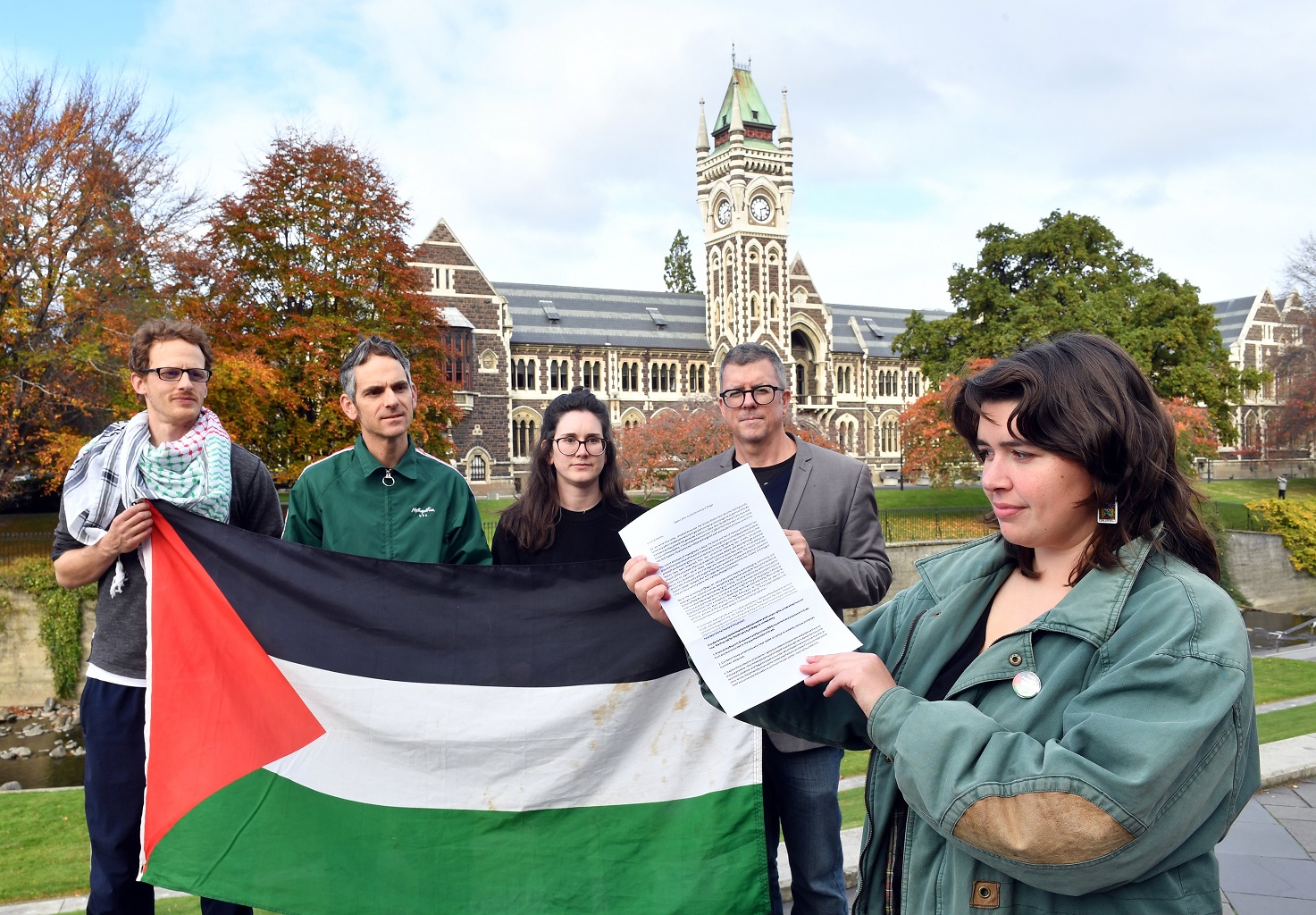An open letter to the University of Otago, signed by about 25 of its own lecturers, teaching and research fellows and postgraduate students, has called for the institution to "disclose and divest from any economic ties to the apartheid state of Israel".
However, acting vice-chancellor Prof Helen Nicholson said "to the best of her knowledge", the university did not have any economic ties to Israel.
The open letter said universities across the United States had become battlegrounds, and university administrators were sanctioning and encouraging violence against students and faculty members as they protested the genocidal violence in Gaza.
Universities should, at the very least, offer crucial spaces for protest, debate and working through collective responses to urgent social issues.
"We at the University of Otago, an institution committed to acknowledging, confronting and seeking to repair colonial violence, are part of a society that extends far beyond the borders of Aotearoa New Zealand."
The letter called for the University of Otago to immediately endorse the Boycott, Divestment and Sanctions (BDS) movement, and disclose and divest from any economic ties to the apartheid state of Israel; condemn those universities who have called on police to violently remove protesters from their campuses; and protect students’ rights to protest and assemble and endorse the aims of those protests - the immediate demand of ceasefire and longer term demands to end the apartheid, violence and illegal occupations under which Palestinians continue to suffer.

"I think it’s about time that the university does the things called for in the letter, because as we can see, students around the world are all protesting.
"This is something that should have happened months and months ago, but it’s never too late."
Prof Nicholson said her "deepest sympathies" were with the people of Gaza, and the open letter would be "considered" and replied to.
She said the university had been approached by several individuals and groups concerned about what was happening, but at the moment, management was focusing on the wellbeing of the university community.
"More than 25,000 staff and students from a wide variety of cultures and ethnicities work and study here.
"We must continue to do all we can to ensure all of our community feels safe and protected."
She said the university remained committed to peaceful protest and the right to freedom of expression, and recognised the importance of academics feeling able to speak on areas of their expertise, including the events happening in Gaza.











